The Flames of Protest Envelop Rome
My impression, standing in the midst of the maelstrom, was that most did not care; they had different concerns. There were two sets of warriors on the march: the high school and university students whom I'd seen earlier gathering in front of the Liceo Virgilio on Via Giulia and the others--the ones in ski masks already throwing loud firecrackers, petardi, at onlookers including me. These are the men and a few women being called the Black Bloc, as at the violence-stained G8 summit a decade ago in Genoa, where a demonstrator was killed. Later in Rome we saw broken store windows, trashed ATMs, tear gas clouds, street signs torn down and used as weapons, destroyed police vehicles, burnt parked cars, savage beatings and ambulances carrying away the more than 50 injured policemen.
Despite this havoc, the non-violent student majority are of greater interest than the predictably violent Black Bloc anarchists, who are more a police and psychiatric problem than social phenomenon. The ordinary students and university researchers, like those I saw a few hours later, seated on a curb (again at Largo Argentina) and enjoying a picnic while sharing a bottle of wine, are the sons and daughters of middle-class Rome. They are attractive, bright and well dressed--but they look ahead and see a diminished future. They are protesting the same sort of schooling budget cuts as are their British peers, but, far worse than in Britain, they see scant future prospects unless the emigrate. Clientele job appointments, connections, and for the young women, a chance to be on TV in a bathing suit: not everyone has these entitlements. This realization is devastating, and to admit that the peaceable majority of demonstrators have good reason to take to the streets is not to justify the violence of the provocateurs and of the invisible, unknown paymasters behind at least a few of them..
Analysts here see a second element in these marchers--a rejection of the political party system that has managed Italy since the end of World War Two. For these young people, the political parties of every stripe are simply irrelevant. Like the sense of diminished prospects in education and the job market, this perception of no one speaking for them has serious implications for the future.
And so once again Silvio Berlusconi has shown a canny instinct to survive, and the predictions--in truth, more in the foreign than the Italian press--that Black Tuesday would mark the end of what is being called "Berlusconism" were proven wrong. And although Italy was rife with rumors that some votes in Parliament were traded for well-paying posts in government, the fact remains that Berlusconi walked out of both houses of Parliament the winner.
What next? First, the defiant President of the Chamber of Deputies Gianfranco Fini, for years Berlusconi's partner in a political party and then in government, has suffered a crushing defeat. The level of insults levied at Berlusconi by Fini in recent days ("Berlusconi wants to stay in power solely to avoid the courts") means there can be no reconciliation between the two. In addition, Futuro e Liberta', the fledgling political party Fini launched only months ago, split in two, shuttling votes back to Berlusconi. Indeed, Berlusconi would not have had his three-vote lead had not two women from Fini's party, both of whom had signed the motion for a no-confidence vote a week ago, turned tail and voted for Berlusconi.
The question now arises of who among defectors like this will fill in the empty cabinet slots. Berlusconi cannily says he is thinking only of single individuals (the two from Italia dei Valori, perhaps, who broke with Di Pietro to vote for Berlusconi?) to fill the posts vacated by the Fini loyalists. Moderation is the new watchword; in recent days Berlusconi, looking ahead, has toned down the rhetoric and said that, in the predicted government reshuffle, he will welcome moderates.
Negotiations for cabinet slots to replace the Fini faithful begin with the Catholic moderate Pierferdinando Casini, but he is playing hard to get. Berlusconi needs Casini in order to stave off those Springtime early elections that risk further bolstering the Northern League, and Casini knows it. In fact, last night Casini truculently threw down a gauntlet at Berlusconi, by telling the premier, "Go on--govern." The meaning: go on and govern if you can. But of course Berlusconi cannot simply go ahead. The next few days of frantic negotiations will be a grotesque poker game, whose highest stakes are held by three tough rivals--Berlusconi, with his shadow premier Gianni Letta in the wings; Umberto Bossi of the Northern League; and Casini.
Meantime, serious reforms--beginning with the electoral law made to measure by Berlusconi that gave him a fat premium of deputies in Parliament--are unlikely, for every vote on a new law risks a new defeat for the government; a three-vote lead is not enough. The country remains on hold or, as the noted economist Mario Deaglio predicted Monday, slated to become a museum stopover for tourists and little more.
A final question is whether Berlusconi will remain in the saddle long enough to replace Giorgio Napolitano in 2013 as president of Italy, as Berlusconi is known to hope. A few months ago that would have seemed most unlikely. Today it is anyone's guess.






























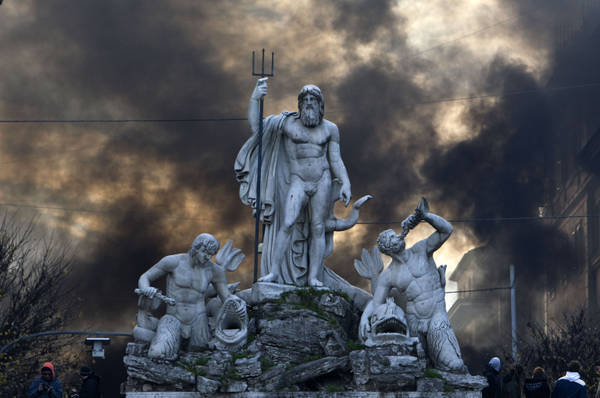
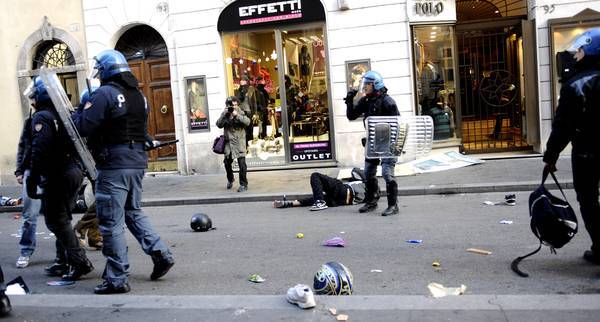
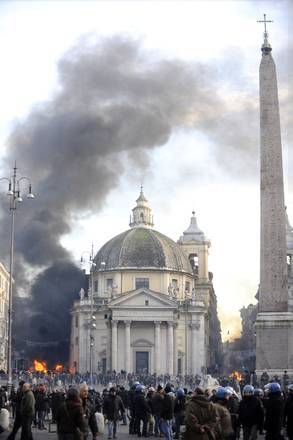
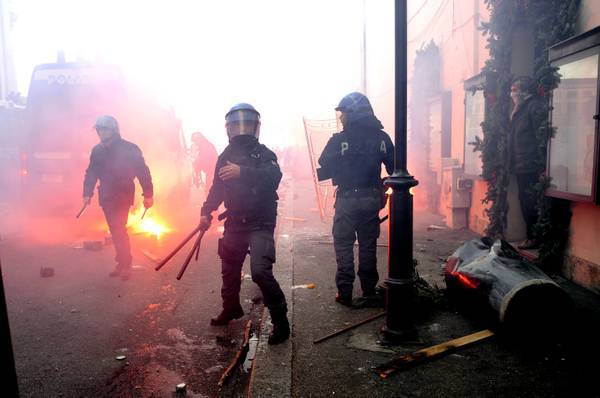
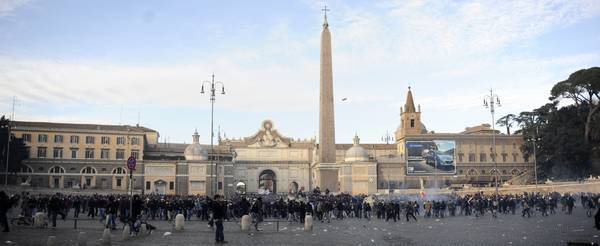
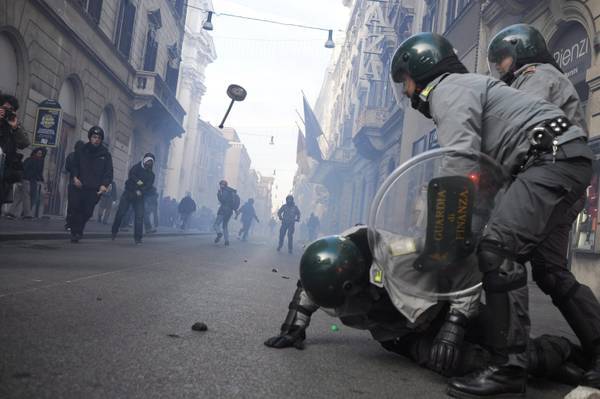
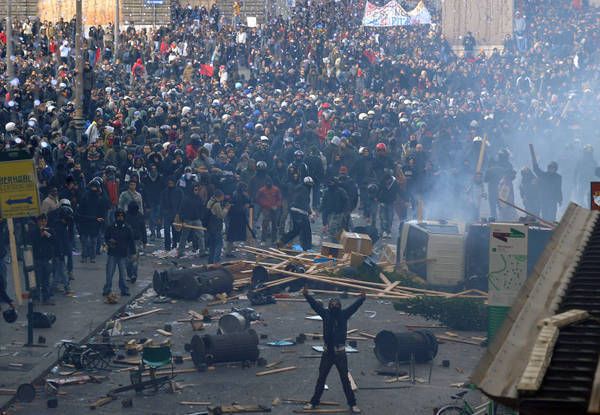






i-Italy
Facebook
Google+
This work may not be reproduced, in whole or in part, without prior written permission.
Questo lavoro non può essere riprodotto, in tutto o in parte, senza permesso scritto.